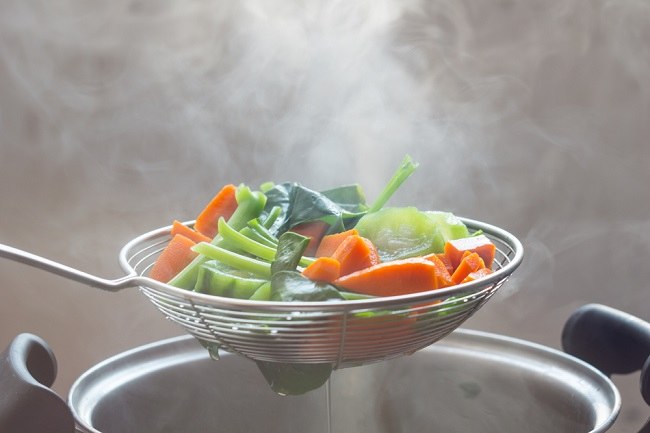Choosing the Right Water for Cooking
The presence of water for cooking is needed. However, not all water can be used to process foodstuffs. Therefore, it is important to make sure that the water you use when cooking is clean and good for health.
In the cooking process, water has very important functions, from cleaning, dissolving, softening. , heating, until cooked food ingredients.

Seeing the important role of water for cooking, it is not surprising that the water used needs to be kept clean and safe. That way, the cooked food can be safe for consumption and does not cause disease.
The Dangers of Cooking with Any Water
Water for cooking obtained from a faucet or well at home can contain germs and chemicals that are harmful to health.
Arsenic and lead are examples of chemicals that can be contained in water. If it enters and accumulates in the body, arsenic can cause vomiting, stomach pain, diarrhea, muscle cramps, and even cancer.
Meanwhile, lead can cause physical and mental development problems in infants and children. In adults, consuming water that has been contaminated with lead can cause kidney problems and high blood pressure.
In addition to chemical compounds, cooking water can also contain parasites, bacteria, or viruses that cause disease. Here are some of them:
- Campylobacter
- E. coli
- Salmonella
- Shigella
- Enterovirus
- Hepatitis A
- Norovirus
- Rotavirus
These contaminants come from animal or human feces that are found around water sources and then enter the body. water. If you continue to use water that contains various germs for cooking, you may experience indigestion, hepatitis, and meningitis.
Requirements for Water that is Suitable for Cooking
For cooking, it is recommended that you use clean, clear, odorless and tasteless water. Colored water can indicate the presence of too much mineral content, such as copper, lead, iron, or manganese.
While water that has an odor, such as the smell of sulfur, rotten eggs, or fish, indicates the presence of bacteria.
However, raw water that looks clean is not necessarily free from chemicals or germs that can be harmful to health. Therefore, instead of raw water, you can use mineral water for cooking.
Boiled Water vs. Bottled Water
When cooking, you can use boiled raw water or bottled mineral water. Both options have their respective advantages and disadvantages. The following is an explanation:
Boiled water
Raw water from faucets or home wells can contain germs that cause disease. Therefore, you must first boil the water until it boils. Next, let the water continue to boil for 1 minute.
Although boiling water can reduce the possibility of contamination caused by bacteria, including E.Coli, the possibility of other bacteria still present in drinking water is still high there is. The risk of contamination with chemicals and other heavy metals in boiling water also cannot be eliminated.
In addition, boiled water may have a high acidity level. Acidic water can contain large amounts of lead, arsenic, copper, nickel, cadmium, chromium, and zinc. In addition, acidic water can damage the lining of the teeth and prevent the absorption of calcium in the body.
Bottled water
In general, cooking using plain water until it boils will remove viruses, germs, and bacteria contained in it. Likewise when using bottled mineral water. In addition, using mineral water for cooking is believed to reduce the risk of exposure to various harmful substances, such as arsenic.
Mineral water also contains many minerals and natural compounds, including magnesium, calcium, bicarbonate, sodium, sulfate, chloride. , and fluoride, which is good for health.
The use of mineral water for cooking will not only protect you from contaminated water that is at risk of spreading disease, it will also help add minerals to your cooking. These various mineral contents are not necessarily found in ordinary boiled water.
Moreover, some types of vegetables are not recommended to be cooked for too long to retain their nutrients. So, cooking using mineral water will help you retain the nutrients from the vegetables and also avoid exposure to harmful substances.
However, you still have to be careful in choosing bottled water to be used for cooking or consumption.
Well, that's the importance of paying attention to water for cooking. The use of clean and germ-free water is certainly good for you and your family's health.
If you experience certain symptoms after using water for cooking, such as stomach pain, nausea, or vomiting, consult a doctor for proper treatment. right.
Label : Healthy life
Comments
Post a Comment